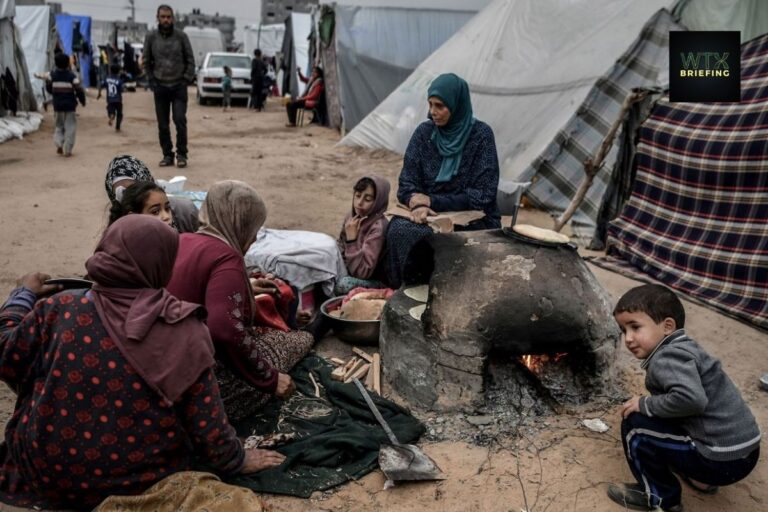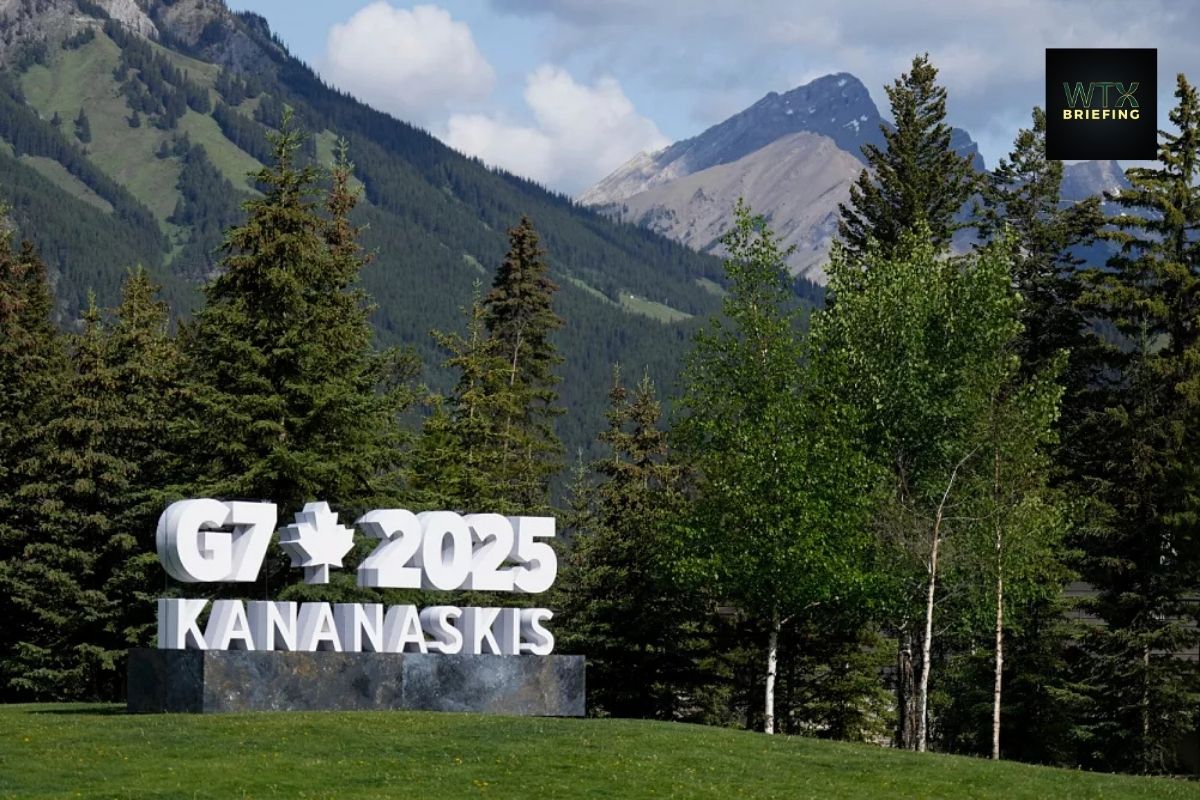(Friday 11 July 2025) – At the start of the week, much of the global news was dominated by the flash floods in Texas. Israel’s Netanyahu suggested Trump should win a Nobel Peace Prize this week, just ahead of his arrival in Washington for a meeting aimed at securing a ceasefire in Gaza.
Israel’s defence minister says he has instructed its military to prepare a plan to move all Palestinians in Gaza into a camp in the south of the territory, according to reports from Israeli media. It comes as reports emerge of more Israeli attacks on Palestinians waiting for food.
In Europe, the ongoing heatwave leads the news, with wildfires and health warnings sweeping the continent. The UK is set for its third heatwave of the summer from this weekend.
French President Macron is on a three-day state visit to the UK, marking the first from an EU leader since Brexit. He is set to meet with politicians and the royals.
END OF WEEK REVIEW
The G7 and Israel-Iran dominate the global headlines. The week began with the G7 summit in Canada, which was largely overshadowed by Israel’s attack on Iran and the growing tension. Trump quit the G7 meeting early, after heaping praise on Putin, in what was seen as a dig towards Ukraine’s Zelenskyy, who had arrived in Canada not long after Trump left.
European leaders scrambled to put pressure on Russia, but ultimately, without Trump, it came to nothing. They also urged a de-escalation in the Israel-Iran conflict, again coming to nothing as Trump signalled the US could enter the war, and Israel and the US suggested the Iranian leader might be assassinated. Russia said there would be consequences if Iran’s leader were killed.
Trump wants Iran back at the negotiating table over its nuclear weapons programme, but with Israel’s sudden attack – and little to no condemnation from the world – it’s unlikely Iran will surrender the only negotiating tool it has.
MIDWEEK UPDATES
- 🗻 G7 in Canada kicks off with tensions high – World leaders gathered in Alberta for the G7 summit, where climate goals, trade woes, and military strategy are all being eclipsed by a worsening Middle East crisis.
- 💥 Iran–Israel conflict escalates – Israel launched fresh strikes on suspected Iranian nuclear facilities, prompting Tehran to retaliate with drones and missiles, raising fears of regional war and jolting oil markets. The US president has hinted that the US military might enter the war.
- 🛢️ Global oil prices spike – As tensions rise in the Middle East, oil markets have surged, with Brent crude nearing $100 a barrel, fuelled by security fears and supply disruption worries.
- 🇪🇺 Macron visits Greenland – The French president landed in Nuuk to signal EU Arctic interest and counter past U.S. attempts to buy the island, just before heading to the G7 summit.
- 🧪 Germany jails Syrian war criminal – In a historic ruling, a Frankfurt court sentenced a Syrian doctor to life for war crimes committed under Assad’s regime, in a rare use of global justice powers.
- 💼 US–UK sign trade deal – Talks at the G7 brought a breakthrough on aerospace and car tariffs, as Washington and London sign a trade deal.
🌍 Global Spotlight, Monday 16 June 2025
World leaders have descended on Canada’s Rockies for the G7 summit, where discussions—especially between the US and EU—are being overshadowed by spiralling Iran‑Israel hostilities. Iran launched dozens of missiles and drones at Tel Aviv and Haifa in response to Israeli airstrikes on its nuclear sites, escalating a crisis that’s rattled oil markets and shifted the summit’s focus from trade to urgent de‑escalation efforts (reuters.com).



